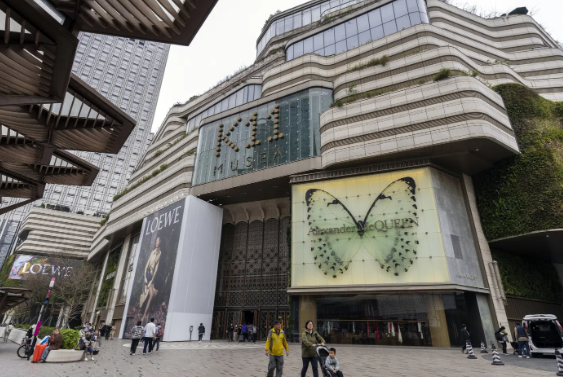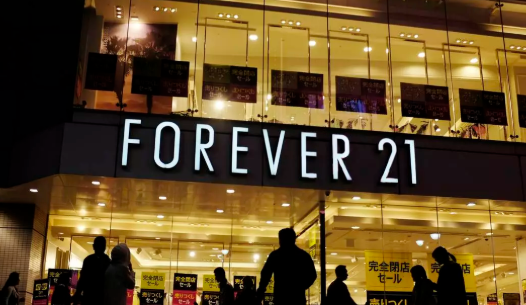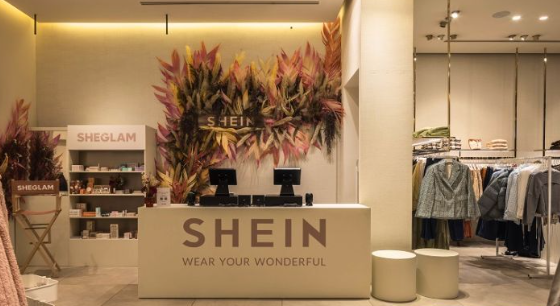Asia Fashion Weekly News Bulletin – ISSUE 6 Week of 17 March 2025
(1) Billionaire Cheng family in talks with Louis Vuitton on mega Hong Kong store
New World Development is negotiating with Louis Vuitton to open a 40,000-square-foot store in Hong Kong’s K11 Musea mall.
(2) Forever No More. Operator of mall staple Forever 21 files for bankruptcy protection
Forever 21 has filed for bankruptcy protection for the second time and plans to close its U.S. business due to declining mall traffic and intensified competition from online retailers, while exploring options to continue operations or sell its assets.
(3) Coach sues fast fashion brand
Coach and its parent company Tapestry Inc. have filed a lawsuit against Shein for trademark infringement and counterfeiting, alleging that the site misleads consumers by selling counterfeit products and seeking to bar such sales and recover damages.
(4) SHEIN overrules possible impacts from US tariffs on its fast-fashion business
SHEIN claims new US tariffs won’t affect its operations, highlighting its resilient business model and committing US$216 million to improve sustainability amid scrutiny over labour practices.
(1) Billionaire Cheng family in talks with Louis Vuitton on mega Hong Kong store

(Photo Credit: Bloomberg)
New World Development, a Hong Kong real estate company controlled by the Cheng family, is in discussions with luxury brand Louis Vuitton to open a large store in the K11 Musea mall. The proposed store would cover approximately 40,000 square feet, making it one of Louis Vuitton’s largest locations in Asia.
The store is expected to include various features such as a museum, a café, and a lounge for VIP customers, according to sources familiar with the negotiations. However, details regarding the rental agreement remain unclear.
While the discussions are reportedly at an advanced stage, there is still potential for changes, and the deal could ultimately fall through. New World Development did not provide a comment, and a spokesperson for LVMH declined to comment on the matter.
News Source: https://www.businesstimes.com.sg/international/global/billionaire-cheng-family-talks-louis-vuitton-mega-hong-kong-store-sources
(2) Forever No More. Operator of mall staple Forever 21 files for bankruptcy protection

(Photo Credit: AP Photo/ Kiichiro Sato)
Forever 21 has filed for bankruptcy protection for the second time, announcing plans to close its U.S. business as foot traffic in shopping malls declines and competition from online retailers like Amazon and Shein intensifies. F21 OpCo, which operates Forever 21 stores, stated that it will wind down operations under Chapter 11 bankruptcy while exploring the possibility of continuing as a business with a partner or selling its assets.
Liquidation sales will be held at U.S. stores, and the company’s website will remain operational during the winding down process. Locations outside the U.S. are managed by other licensees and are not included in the bankruptcy filing. Authentic Brands Group, which owns the international intellectual property of Forever 21, may license the brand to other operators, aiming to modernise its distribution model and improve competitiveness in the fast fashion market.
Founded in 1984, Forever 21 has struggled with macroeconomic challenges and its own operational issues, including a slow adaptation to online shopping. The company aggressively expanded during a time when consumer preferences shifted towards online retail, while facing fierce competition from cheaper alternatives like Shein and Temu.
News Source: https://www.bastillepost.com/global/article/4662533-mall-staple-forever-21-files-for-bankruptcy-protection-again
(3) Coach sues fast fashion brand

(Photo Credit: Lightspring/ Shutterstock)
Coach, along with its parent company Tapestry Inc., has launched a lawsuit against the Chinese discount site Shein in federal court in California, alleging trademark infringement, counterfeiting, and unfair competition. The lawsuit claims that Shein sells products that bear trademarks “identical, substantially indistinguishable, or confusingly similar to” Coach’s federally registered trademarks, misleading consumers into believing they are purchasing authentic Coach items.
Coach contends that Shein plays a significant role in facilitating the sale of counterfeit goods by providing logistical support, including warehousing, packaging, and shipping for third-party sellers on its platform. Additionally, Shein manages customer complaints and returns while charging a 10% referral or selling fee.
In the lawsuit, Coach is seeking to prevent Shein from selling counterfeit or infringing products and is requesting monetary damages, including profits from counterfeit sales, statutory damages, and attorneys’ fees. They also demand the recall and destruction of all infringing goods associated with the brand.
News Source: https://www.businessinsurance.com/coach-sues-fast-fashion-brand/
(4) SHEIN overrules possible impacts from US tariffs on its fast-fashion business

(Photo Credit: www.retaildetail.be)
Chinese fast fashion giant SHEIN has stated that the newly imposed US tariffs will not impede its operations in the American market. Executive Chairman Donald Tang expressed confidence in the company’s ability to adapt, citing its resilient business model and past experiences overcoming disruptions like the COVID-19 pandemic, despite the 20% tariff increase on imports from China.
SHEIN has faced scrutiny over its labour practices and environmental impact. Tang reiterated the company’s “zero tolerance” policy on forced labour and commitment to International Labour Organisation standards, noting that independent, unannounced factory audits are conducted.
To enhance its environmental reputation, SHEIN has announced a significant investment of approximately US$216 million in circular-economy and recycling projects in Europe. Tang mentioned ongoing discussions with technology leaders in various European cities, while environmental groups have raised concerns about SHEIN’s substantial carbon footprint, estimating daily emissions of 15,000 to 20,000 tonnes of carbon dioxide. As the EU and individual nations consider regulations to address fast-fashion waste, SHEIN is under increasing pressure to demonstrate its commitment to sustainability.
News Source: https://apparelresources.com/business-news/retail/shein-overrules-possible-impacts-us-tariffs-fast-fashion-business/


